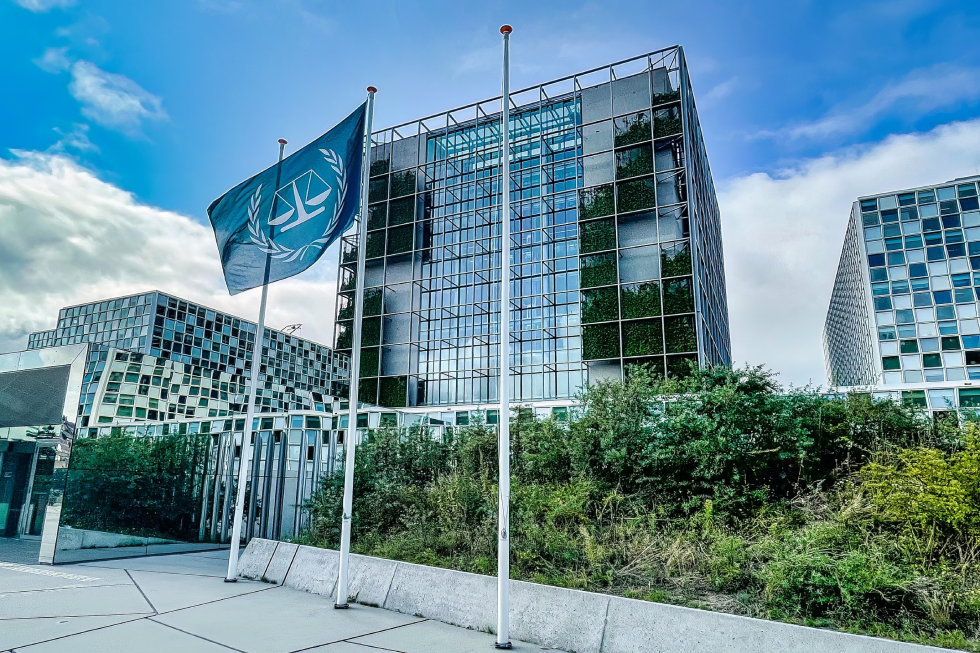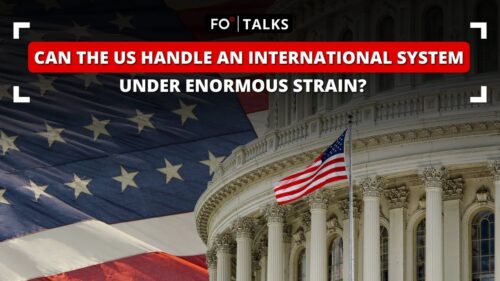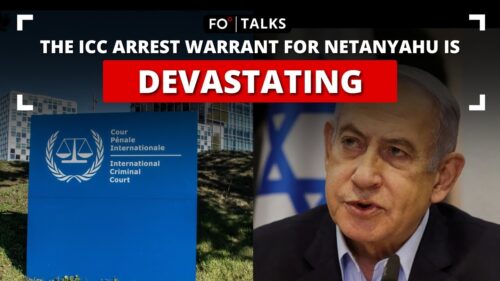Exactly 160 years ago, in August 1864, twelve states signed the first Geneva Convention. Its aim was to improve the fate of the wounded and sick among armed forces in the field. It was directly inspired by a proclamation of Guillaume Henri Dufour, addressed to the Swiss army on November 5, 1847, on the occasion of a civil war that broke out in Switzerland between conservative Catholics and liberal Protestants.
“Soldiers,” the general insisted, “we must emerge from this fight not only victorious but also beyond reproach. It must be said of you: They fought valiantly when necessary, but they showed themselves everywhere to be humane and generous.” He then detailed the categories of people to be protected: women, children, the elderly, members of the clergy and, even less obviously according to the customs of the time, prisoners and the wounded, who “deserve your consideration and compassion all the more since you often found yourselves with them in the same camps.”
Here, in embryo, we have the international humanitarian law that, following World War II, would be enshrined in the Geneva Conventions of 1949 and their additional protocols of 1977. This is what is called jus in bello, literally, law in war. Belligerents have the obligation to protect civilians and combatants who are wounded or taken prisoner. These obligations are legally binding on all states and on all armed groups, both state and non-state. For example, the use of force is prohibited if the number of civilian victims is disproportionate to the military objective sought.
Jus in bello and jus ad bellum
The right to war (jus ad bellum), or the right of a state to resort to armed force, is governed by the United Nations Charter. It authorizes the use of force only in two cases: self-defense and express authorization by the United Nations Security Council. The right of a non-state actor such as Hamas to armed resistance is only mentioned in resolutions of the General Assembly, which do not have the same legal value as those decided by the Security Council.
Until the early 1990s, the international system lacked a mechanism to punish violations of the rules governing the use of force. Following the ethnic cleansing of Bosnian Muslims and others in Yugoslavia in and the genocide of the Tutsi by the Hutus in Rwanda, the international community laid the groundwork for an international criminal justice system by establishing the International Criminal Tribunals for the former Yugoslavia (1993) and for Rwanda (1994).
The advent of the International Criminal Court (ICC) in 2002 established a general mechanism for repressing violations of international humanitarian law. The ICC statute defines four categories of crimes: war crimes, crimes against humanity, the crime of genocide and the crime of aggression. War crimes are serious violations of the Geneva Conventions. Crimes against humanity are essentially the same, but carried out systematically against the civilian population. The crime of genocide is defined as acts of murder and other acts committed with the intent to destroy in whole or in part a population group. The crime of aggression consists in acts of war carried out by a state without the legal right to do so.
How does this apply to Israel?
A consensus exists within the international community to recognize Israel’s right to defend itself after the deadly attack on its soil by Hamas and other Palestinian groups on October 7, 2023. But Israel is required to respect the jus in bello in the conduct of hostilities. Both sides are accused of crimes punishable by the ICC.
The high number of civilian casualties would indicate that Israel is not seeking to protect civilians or that it is deliberately targeting them. According to the UN, 70% of the approximately 44,000 people who have died in Gaza since October 7, 2023, are women and children. Israel defends itself by saying that it warns the population before strikes and that military objectives justify attacks on civilian facilities because Hamas operates from inside them.
Israel has also been accused of blocking or limiting humanitarian aid to Gaza, which has an impact on the food and health situation of Gazans, and of mistreating prisoners. According to the UN, 53 Palestinian detainees died in prison between October 7, 2023 and July 15, 2024. There are also documented cases of sexual violence.
Accusations against Hamas and other Palestinian factions focus primarily on the October 7 massacres in neighboring Gaza kibbutzim that killed 1,205 Israelis. According to Israeli social security, there were 695 civilians among the victims, including 36 children. In addition, 251 people were kidnapped, though the proportion of civilian to military hostages has not been determined. There are said to be less than a hundred alive today. Palestinian militias have also been accused of sexual violence, including rape, as well as using the civilian population as human shields.
Accusations of genocide are flying in both directions. Hamas is accused of wanting to eliminate any Jewish presence between the Mediterranean and the Jordan River. The 1988 founding charter of the Islamist movement cites a verse from the Koran calling for the murder of Jews. A 2017 document issued by Hamas is much more moderate and can be read as compatible with the two-state solution. However, the original charter has never been denounced by the movement.
On the other hand, Israeli Prime Minister Benjamin Netanyahu and some of his ministers, in particular Bezalel Smotrich and Itamar Ben Gvir, have made potentially incriminating statements. The former referred to a passage from the Bible relating to Amalek, considered the archetypal enemy of Israel. God, according to a passage from the Bible, orders the Israelites to exterminate the Amalekites, including women and children. Other potential evidence of genocidal intent on the part of the Israeli government may include the systematic destruction of infrastructure such as roads, water supply facilities, schools, universities, hospitals, mosques and churches. The scale of civilian casualties, as well as population displacements, completes the picture.
Legal proceedings
Two proceedings are underway, one before the International Court of Justice, the other before the ICC. The first, tasked by the UN Charter with settling disputes between states, established in January 2024 that there was a plausible risk of genocide and ordered measures, including improved humanitarian access to Gaza. On July 19, the same court issued an advisory opinion declaring that Israel’s occupation of Gaza, the West Bank, and East Jerusalem was illegal. As for the ICC, its prosecutor requested in May 2024 that the Court issue arrest warrants for 3 Palestinian leaders and 2 Israelis accused of crimes against humanity and war crimes. The three Palestinian suspects have since been eliminated by Israel, although doubts remain over the fate of the head of the military branch, Mohammed Deïf.
On November 21, 2024, the ICC, a chamber composed of three judges, one French, one Beninese and one Slovenian, confirmed the indictments proposed by the prosecutor and issued arrest warrants for the accused Netanyahu, Gallant and Deïf. As expected, the reactions were apoplectic in Israel and Washington.
It is necessary to correct two criticisms Netanyahu’s administration has systematically and virulently leveled against the Court by pointing out that:
- The Court says nothing about the legality or otherwise of the military operation in Gaza. It states that there are reasons to believe that crimes were committed during the war. But it does not say that the war is illegal. Israel’s right to self-defense is not called into question.
- The Court has not indicted either the State of Israel or Hamas. Its mandate, which it has respected to the letter, is to prosecute individuals, not institutions. So it is individual citizens Netanyahu, Gallant and Deïf who are now wanted for war crimes and crimes against humanity. The state of Israel has neither been attacked nor prosecuted before the ICC.
Risks for the survival of the system
It is in the interest of Europe and the world that these cases follow their judicial course. After the tragedies of the first half of the twentieth century, the international community sought to create a system of global governance where law prevails over force rather than the other way around. The ICC is the keystone of the system. 125 countries from all continents are parties to the Rome Statute that created it.
Furthermore, only the ICC is capable of establishing the facts and their legal determination in an impartial manner. Thus, as the UN Tribunal in the former Yugoslavia did for the Balkan wars of the 1990s, its judgments, based on what really happened, will discredit the propaganda that today dominates on all sides.
There is a significant risk that the pressure on international judicial personnel will become so great that ongoing cases will be dropped. International prosecutors and judges have reason to fear smear campaigns, visa denials aimed at themselves or their families, as well as financial sanctions intended to prevent them, for example, from carrying out banking transactions.
Pro-Israel lobbies, supported by the US government, are likely to exert pressure on European governments to refrain from executing ICC arrest warrants in the event that one of the accused shows up on their soil. Washington, Jerusalem and their allies in Europe may well seek to convince national parliaments to cut funding to the ICC. We should recall that, under US President George W. Bush, the US Congress gave the president the authority to use all means to prevent American citizens or those of allied countries — including Israel — from being brought to justice before the ICC. Following the publication of the arrest warrants targeting Israeli leaders, US Senator Tom Cotton penned a tweet reminding the public of this Bush-era law, known informally as the “Hague Invasion Act.”
Yielding to this pressure would be throwing away one of the most useful investments ever made by European countries, which finance the bulk of the ICC’s budget, to put an end to the impunity of the powerful, promoting peace and an international order based on law. It has been a worthwhile and inexpensive investment. Its budget of €200 million ($212 million) is 4,000 times less than the American defense budget. And no one can seriously claim that the American military has contributed much to peace in recent decades.
At the opening of the trial of former Serbian President Slobodan Milošević in 2002, Prosecutor Carla Del Ponte stated the principle in these terms: “No one is above the law, or beyond the reach of international justice.” The ICC has just proven that these strong words can still hold true. Every honest leader should post that quotation on the wall of their office.
The views expressed in this article are the author’s own and do not necessarily reflect Fair Observer’s editorial policy.
Support Fair Observer
We rely on your support for our independence, diversity and quality.
For more than 10 years, Fair Observer has been free, fair and independent. No billionaire owns us, no advertisers control us. We are a reader-supported nonprofit. Unlike many other publications, we keep our content free for readers regardless of where they live or whether they can afford to pay. We have no paywalls and no ads.
In the post-truth era of fake news, echo chambers and filter bubbles, we publish a plurality of perspectives from around the world. Anyone can publish with us, but everyone goes through a rigorous editorial process. So, you get fact-checked, well-reasoned content instead of noise.
We publish 2,500+ voices from 90+ countries. We also conduct education and training programs
on subjects ranging from digital media and journalism to writing and critical thinking. This
doesn’t come cheap. Servers, editors, trainers and web developers cost
money.
Please consider supporting us on a regular basis as a recurring donor or a
sustaining member.
Will you support FO’s journalism?
We rely on your support for our independence, diversity and quality.







Comment